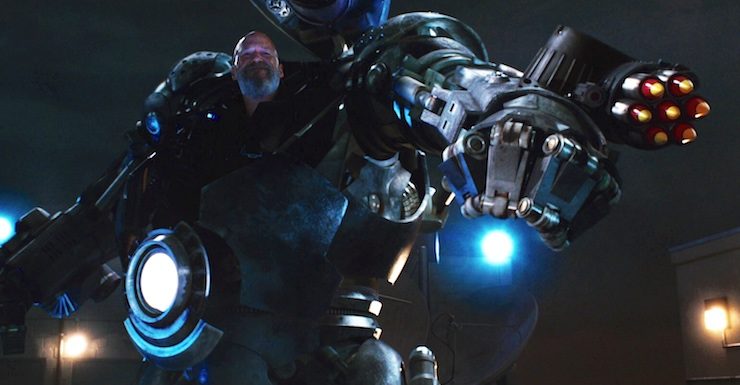From the moment Tony Stark put on power armor to slug it out with Obadiah Stane for control of Arc Reactor technology, the Marvel Cinematic Universe has been about a generational struggle against Bad Dads for the fate of the world.
Each movie is the story of men (mostly) realizing that they can no longer rely on their fathers (or uncles, or other surrogate father figures) to fix their problems for them, and now must use their own sense of morality and ethics to decide what to do with the great power they possess.
This theme of growing up and becoming an adult comes directly from the Marvel comics of the ‘60s, where many of the characters and most of the target audience were teenagers. It’s a little weird in the films, considering the three main Marvel men are 53, 100, and 1500 years old. However, Tony Stark, Steve Rogers, and Thor are all in states of arrested development in the early MCU films—Tony and Thor because their Bad Dads are keeping important responsibilities from them, Steve in a literal block of ice—and their film series have been about them learning and relearning that what they were taught as kids is not how the world actually works.
There are three types of Bad Dad, three ways that Marvel fathers fail their children.
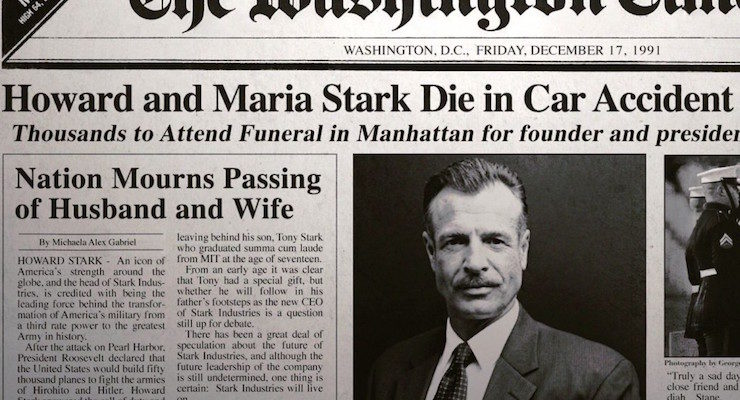
The first is the Dead Dad. Not bad in a moral sense, but merely in a practical one—we can all agree that corpses are not good at child rearing. The Dead Dad can’t step in and tell the hero what to do because, well, they died—usually in a violent manner, usually in the hero’s arms, usually after imparting an important lesson about power and its relationship to responsibilities. The Dead Dad needs to be replaced, and honored at the same time.
The Dead Dad that looms over the entire MCU is Howard Stark. So much of the Iron Man movies, and then the Avengers and the Captain America movies, is Tony Stark trying to fill the hole—in his company, in S.H.I.E.L.D., in the world—left by his father’s death. Tony’s every move is checked against whether his father would have done the same thing, and he’ll never know, because his dad is dead. It’s not a coincidence that even as a successful adult, Tony has the emotional capacity of the brilliant and angry teenager he was the night his parents were killed.
Other examples of the Dead Dad are Dr. Yinsen, Dr. Erskine, Phil Coulson, and T’Chaka. Spider-Man has the most famous Dead Dad in Marvel Comics, maybe the second most famous in all superhero-dom. So famous, in fact, that, in a baller move, the three MCU films featuring Spider-Man have never mentioned his name, his death only obliquely referred to as “everything my aunt’s been through.” The filmmakers trust that you know.
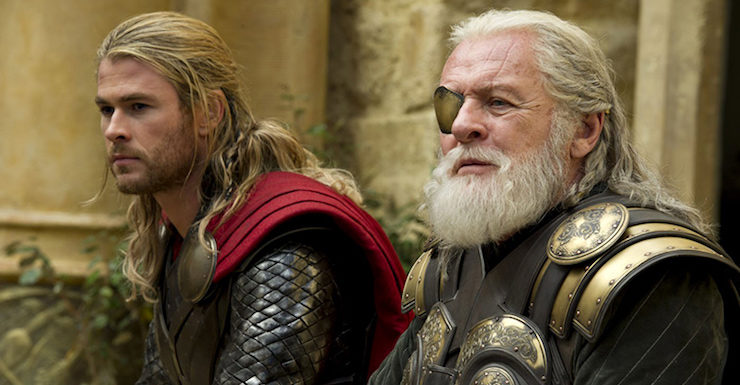
Worse than the Dead Dads are the Crap Dads. A Crap Dad wants what’s best for his children, but also wants to control them, either through abuse of authority or through outright lies and sins of omission. Crap Dads are complicated, scared and proud, hiding their mistakes and leaving their kids unprepared for real hardships to come. And while they are not villains themselves, they often end up empowering the villains through their misguided attempts at saving their own reputation. The Crap Dad is meant to be outgrown.
The ultimate Crap Dad is Odin. The plot of every Thor film is that Odin neglected to tell Thor about some threat from the past (Loki/Elves/Hela), now it’s back and Thor has to clean it up himself because Odin is too busy sleeping/mourning/being dead. And despite the fact that Thor keeps learning his dad was a really shitty dude, Thor still strives for his approval, even after Odin dies. (This being a fantasy, that’s not entirely a futile gesture.)
Not that Odin’s alone. By far, Crap Dad is the most common type of Dad in the MCU. There’s General Ross, Nick Fury, Yondu, Hank Pym, the Ancient One, and (once again) T’Chaka. Again, part of the coming of age story is learning your heroes have feet of clay, and that becoming your own person leads to a complicated relationship with your father.
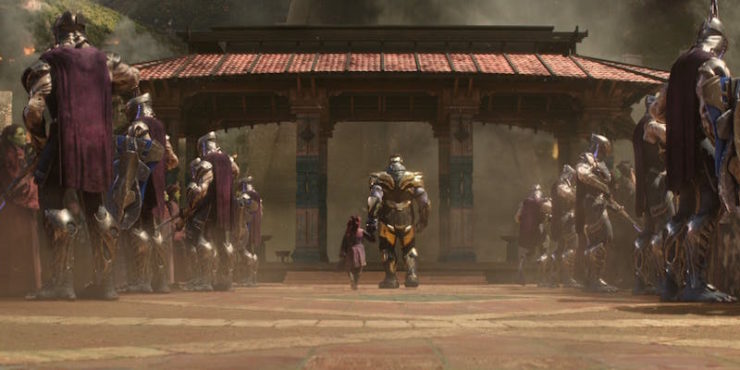
And then, sometimes it’s not complicated at all. Sometimes Bad Dads are just bad. Evil Dads plague the MCU and are by far its worst villains: Obadiah Stane, Alexander Pierce, and Ego the Living Planet. Evil Dads don’t care about the welfare of their children, and will exploit or even kill them to further their own goals. These men are sociopathic monsters, and the films have no sympathy for them. The Evil Dad is meant to be destroyed.
The ultimate example of Evil Dad is, of course, Thanos. He has a universally genocidal goal and literally sacrifices his daughter to achieve it. Furthermore, he’s the only Bad Dad who explicitly abuses his children, pitting his daughters in combat against each other in the past and physically torturing Nebula in order to mentally torture Gamora in the present.
Note that these categories are not mutually exclusive. One character can be many types of Dad, depending on circumstance. For example, for the first half of Iron Man, Stane comes across as “merely” a Crap Dad, keeping the darker sides of weapons manufacturing from Tony to protect his fragile self-esteem. Then we learn that Stane has been feeding off Tony’s brilliance for years and is now outright trying to kill him. Yondu goes from being an Evil Dad, threatening to eat Star-Lord, to Crap Dad to be outgrown and finally to Dead Dad to be honored. T’Chaka, on the other hand, goes from being a Dead Dad who has “never failed” his son to being a Crap Dad who totally and completely failed his son, his country, and the world. Good going, T’Chaka.
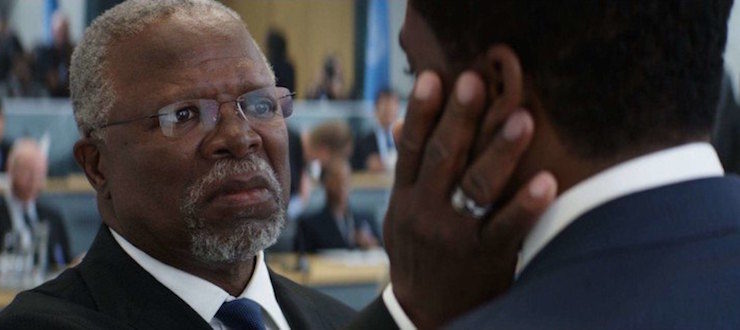
The theme of fatherhood, and its failures, hangs over the stories of actual fathers who are also heroes, including Clint Barton and Scott Lang. Drax’s shame over the death of his wife and daughter and his belief that he failed as a father drive all his choices, from his bullheaded pursuit of revenge against Ronan and Thanos, to trying to mentor Peter Quill and comforting a mourning Rocket.
Buy the Book
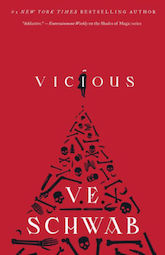

Vicious
It really colors Tony Stark’s arc, especially post-Avengers. Suddenly finding himself protector of the world, Tony struggles with how to be a Good Dad when he doesn’t have a great role model to rely on. So he keeps trying new things and failing. Iron Man 3: I’ll fix everything myself. Oops, that didn’t work. Age of Ultron: Okay, I’ll build a big machine to fix everything—oh, oh no, that went horribly. Civil War: Okay, let’s just write some rules about how we’re going to work together—oh c’mon, that should have worked.
This culminates in Spider-Man: Homecoming, where Tony finds someone who is basically his 15-year-old self: young, brilliant, burdened with power and responsibility, and suffering from a VERY similar loss. Tony wants to do right by Peter Parker, but he legitimately doesn’t know what that is, and thus finds himself being a Crap Dad. He vacillates between empowering Spider-Man, literally giving him the iconic suit, and discouraging the kid from putting himself in mortal danger. This controlling, manipulative behavior makes Tony very much a Crap Dad. Not Obadiah Stane bad, or even Odin bad, but still not a person who provides the support and guidance that Peter so desperately wants. It’s not until the end of the last movie, where Tony learns to listen to Peter and trust that Peter can make decisions for himself, that Tony becomes the elusive Good Dad.
And, yes, Tony becoming a Good Dad does make the end of Infinity War that much more heartbreaking.
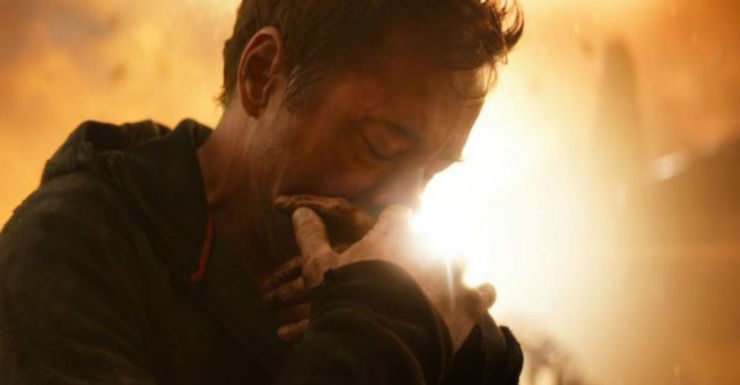
(Note: I’m talking about the Bad Dads of the MCU and not the Bad Moms, because there aren’t any. There aren’t many women in the MCU to begin with, even fewer mothers, and fewer still female villains. What mothers exist are either loving and supportive but kinda useless as moral guides, or… dead, and not in the Dead Dad sense. Dead Moms are not seen as role models to be replaced, but lost prizes that must be avenged. So far, there are THREE movies that have a version of the line, “You shouldn’t have killed my mom!” If they ever get around to making a Black Widow movie we might meet the Mistress of the Red Room, who is definitely One Bad Mother, but until then, Moms are mainly just sources of comfort.)
Seen as a generational struggle, the MCU is revolutionary in a very literal sense. These movies are about heroes replacing, outgrowing, and in some cases utterly destroying the men who are currently in charge. Evil Dad Alexander Pierce says, “to build a better world sometimes means tearing the old one down,” and that’s tautologically true, but he leaves out the fact that he is the old one. Pierce is the head of the most powerful intelligence agency in the world, and plans to murder millions in an attempt to further entrench his already massive power. To build a new and better world, Pierce is the one that needs to be torn down.
Superheroes often get knocked as defenders of the status quo, but at least in Avengers films, they have been anything but. They are constantly remaking their world: toppling kings, gods, demons, planets, a whole host of Bad Dads, and replacing them with themselves. For the better, they hope.
Steven Padnick is a freelance writer and editor. By day. You can find more of his writing and funny pictures at padnick.tumblr.com.










